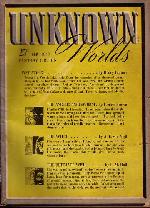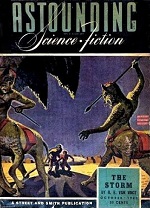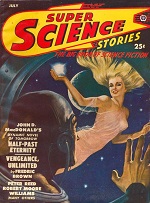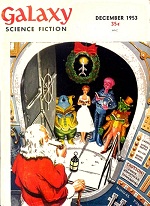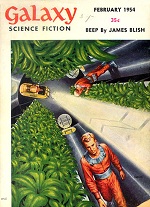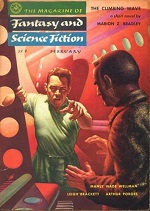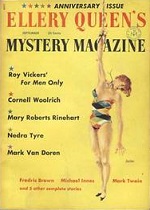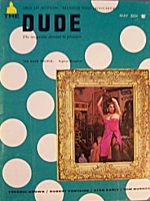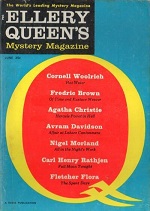Short Story
The Angelic Angleworm
- by Fredric Brown
- in Unknown, February 1943
If Charlie Wills and you have patience, then Charlie will figure out what’s causing those strange occurrences (such as an angleworm turning into an angel) and you will figure out that angels can time travel.
We can drop you anywhere in the continuum.

